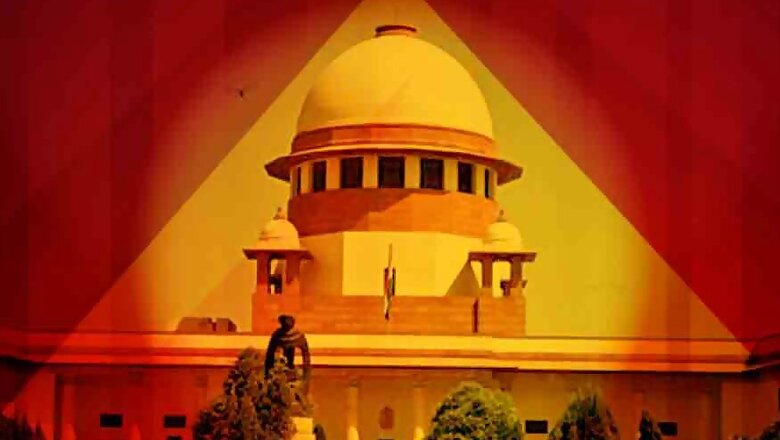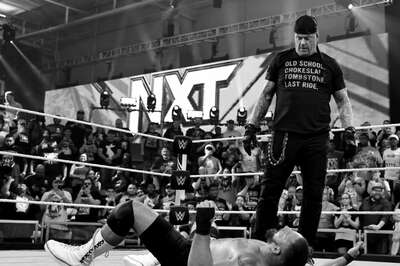
views
New Delhi: The Supreme Court on Wednesday rejected the Gujarat government's plea to maintain confidentiality of the final report of the Justice H S Bedi committee on 24 alleged fake encounter cases from 2002 to 2006 in the state and ordered that it be given to petitioners including poet and lyricist Javed Akhtar.
A bench headed by Chief Justice Ranjan Gogoi said it was Akhtar and veteran journalist B G Verghese, since dead, who had set the "ball rolling" by filing petitions in the case, and the copies of the panel's report need to be given to them besides the state government.
The bench, which also comprised Justcies L Nageswara Rao and S K Kaul, made clear however that it was neither accepting nor rejecting the 221-page report of the committee at this stage.
It said it would deal with this aspect later and directed that the parties including the state government file their responses or objections, if any, within four weeks from receiving the report.
"We are of the view that the copy of the report should be furnished to the petitioners as well as the Gujarat government to file their response," said the bench.
The top court was hearing two PILs filed in 2007 by Verghese and Akhtar, seeking a direction for a probe by an independent agency or the CBI so the "truth may come out". Verghese passed away on December 30, 2014.
At the outset, the bench got irked when the state government's counsel sought adjournment of the hearing on the ground that Solicitor General Tushar Mehta was busy arguing a part-heard case in other court.
"It is for the Solicitor General to arrange his business. If he has made a choice that he would not appear in the first court of the country, so be it," the bench said.
Lawyer Rajat Nair, representing the state government, vehemently objected to the plea of advocate Prashant Bhushan that a copy of the final report be given to the petitioners saying that they "do not have any locus" and moreover, it would cause "prejudice" to the persons who may have been named in the report.
"You are Gujarat government. Look after your interest and business," the bench said, adding that earlier reports of the committee were in the form of the status reports which were not given to parties.
"He (Akhtar or Verghese) is the petitioner. He has set the ball rolling. How can you say that he is nobody to get the report," the bench observed.
Perusing the response of Justice Bedi on the aspect as to whether he had shared the report with other members of the apex court-appointed monitoring committee, the bench said that as per earlier orders, the former Supreme Court judge was authorised to draft the final report on behalf of the panel and moreover, the chairperson has discussed the matters with other members.
"How did you (state) say that Justice Bedi was not authorised to draft the report," the bench asked, adding that the report would only be effective after it decides on the acceptability.
The bench also did not consider the plea that a media trial would commence on the report even before the court decides the issue of its acceptance.
"We say it again, we are not accepting or rejecting the report. The report will become effective when the court accepts it. We will deal with this aspect later...this is a 221-page report and even we have not seen the report," it said.
Senior advocate Rakesh Dwivedi, appearing for one of the parties, also objected to the move to make public the report by giving them to the parties to the case and said that it was trial court which should be dealing with it. The plea was rejected by the court.
Earlier, the apex court had asked Justice Bedi, who had chaired the committee monitoring the probe into the Gujarat fake encounter cases, whether he had shared his final report with other members of the panel.
Justice H S Bedi was appointed chairman of the monitoring committee probing 24 encounter cases from 2002 to 2006 in Gujarat by the Supreme Court.
The monitoring committee had submitted its report to the court in a sealed cover in February this year.
The Gujarat government was objecting to putting it in public domain, contending that it was not clear whether the views expressed in the final report were unilateral of Justice Bedi or he had shared it with other members of the monitoring committee.
The bench had asked Justice Bedi to give his view on the questions raised to the apex court expeditiously.
In September 2016 the court had granted three more months to the STF to conclude its ongoing probe into the alleged fake encounter killings in Gujarat between 2002 and 2006.
The STF, working under the supervision of the monitoring panel headed by former apex court judge Justice Bedi, had probed the alleged fake encounters in the state.
The STF said it had probed 22 cases and two out of total 24 encounter matters remained to be investigated.
Justice Bedi was appointed as the Chairman of the already functioning monitoring committee set up by the state government on March 2, 2012.
The apex court had asked the monitoring authority to place before it preliminary reports relating to the alleged fake encounters between 2002 and 2006 in Gujarat, purportedly showing a pattern that people from the minority community were targeted as terrorists. These were submitted periodically.
















Comments
0 comment